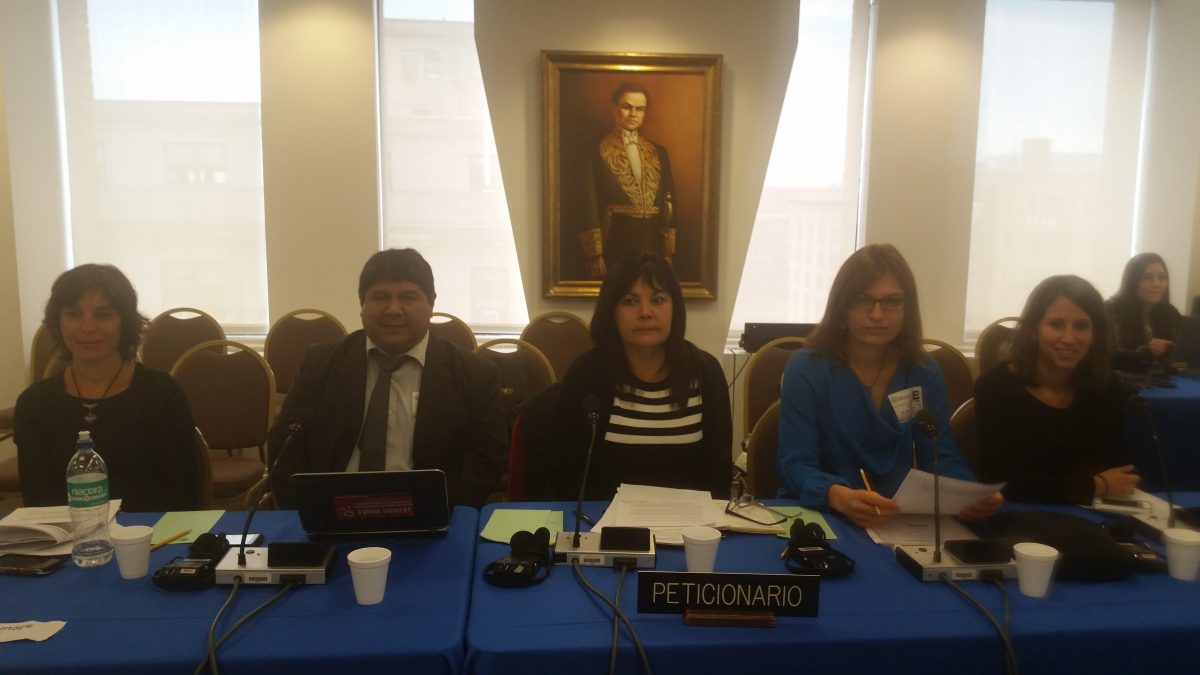






CEJIL, the National Coordinator for Human Rights (CNDDHH, as it is known in Spanish) and the Ecumenical Foundation for Development and Peace (FEDEPAZ) denounced the grave situation of repression faced by social protests in Peru on March 17, 2015.
The participating organizations highlighted the abusive use of force and criminal prosecution used against those who participate in demonstrations, and the stigmatization of social and human rights leaders and groups that have supported protesters.
According to the petitioners, in Peru there have been 136 extrajudicial killings of protesters from 2003 to date. Since 2011, 40 civilians have died at the hands of law enforcement officers, in situations of social protest. Although the majority of the victims have been adult males, there are also women (8%) and children (10%) among those killed.
In addition to the fatalities, at least 652 civilians have been injured. In many cases, the law enforcement agents left people severely disabled for life. According to the petitioners, there is absolute impunity in cases of abusive use of force since 2003, as there have been no convictions of the persons responsible for these acts.
In Peru, the abusive use of the force is highly discriminatory since the violence used to suppress protests is much greater in rural and indigenous areas of the country. Additionally, there is an excessive use of police forces associated with the Division of Special Operations in social protest situations. These personnel are trained to use extreme force and are intended for controlling drug trafficking and combating terrorism.
One example that demonstrates the situation is the behavior of the Ministry of the Interior, headed by retired General Daniel Urresti Elera, during the demonstrations carried out at the end of 2014 and beginning of 2015 to protest Law number 30288 which dealt with youth’s access to the Labor Market and Social Protection. This regulation was widely rejected by young people since it established a labor system with significant cuts in rights related to general working conditions. For this reason, five demonstrations were organized in Lima, during which the CNDDHH document actions of abuse of force, arbitrary arrests, torture and attacks on journalists. As a result, the Ministry of the Interior carried out intimidation tactics against 20 leaders and advocates who supported the demonstrations, including a preemptive accusation (for crimes that might be perpetrated in the future), which involved the Executive Secretary of CNDDHH, Rocío Silva Santisteban.
At the end of the hearing, the participating organizations asked the Commission to request that the Peruvian Government: establish a regulation of procedures for the use of force in situations of social protest; eliminate provision of service agreements between private companies and public security officers; publish information about the number of civilians killed by public officers during protests; and ensure access to justice and redress for persons affected by abusive use of force, among other issues. They also asked the Commission to monitor the situation of repression of social protest throughout the hemisphere and to follow-up on cases that have been presented in different reports on freedom of expression and defense of human rights.
¡Ayúdanos a continuar este trabajo crítico y urgente con una donación!
DONA AHORA